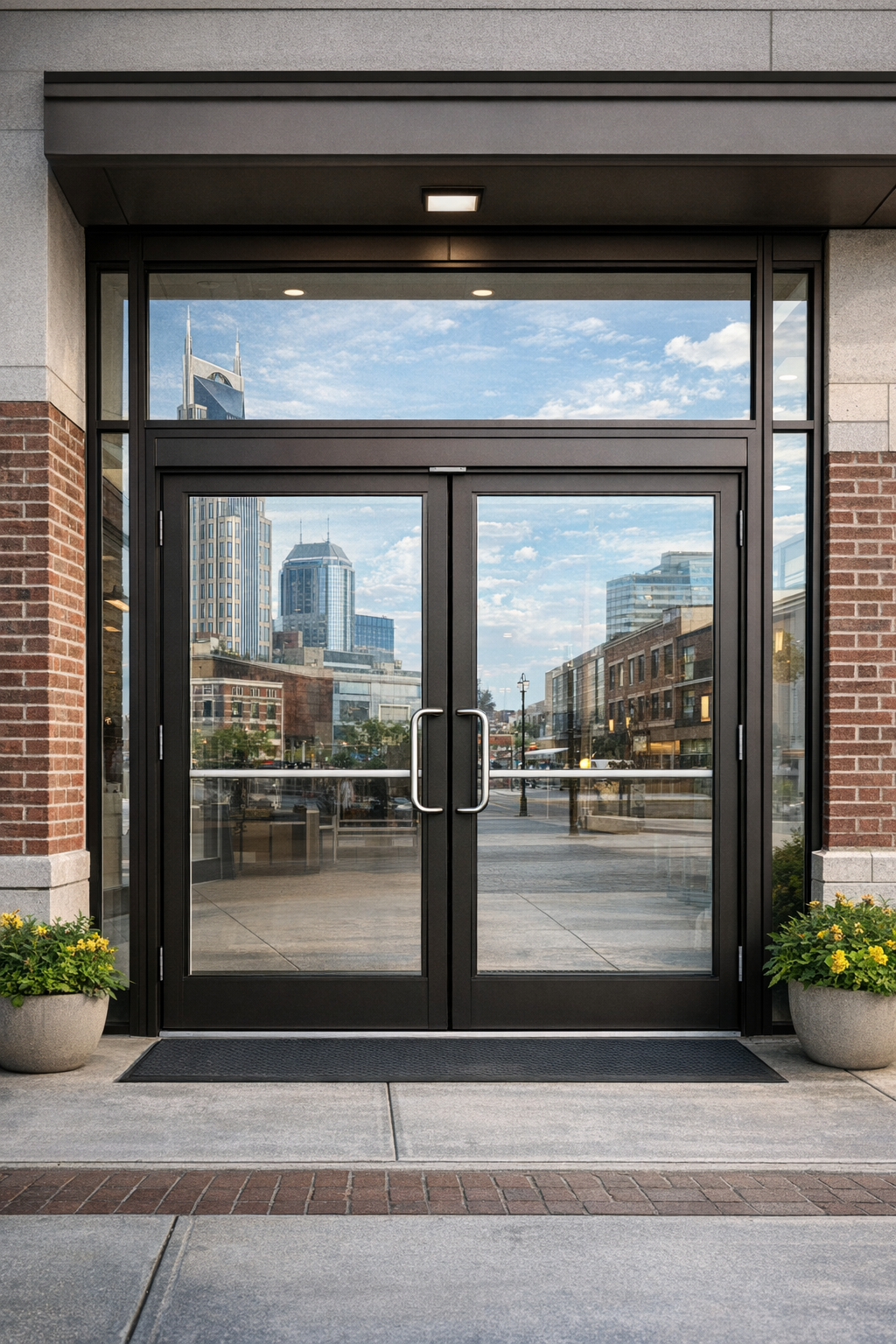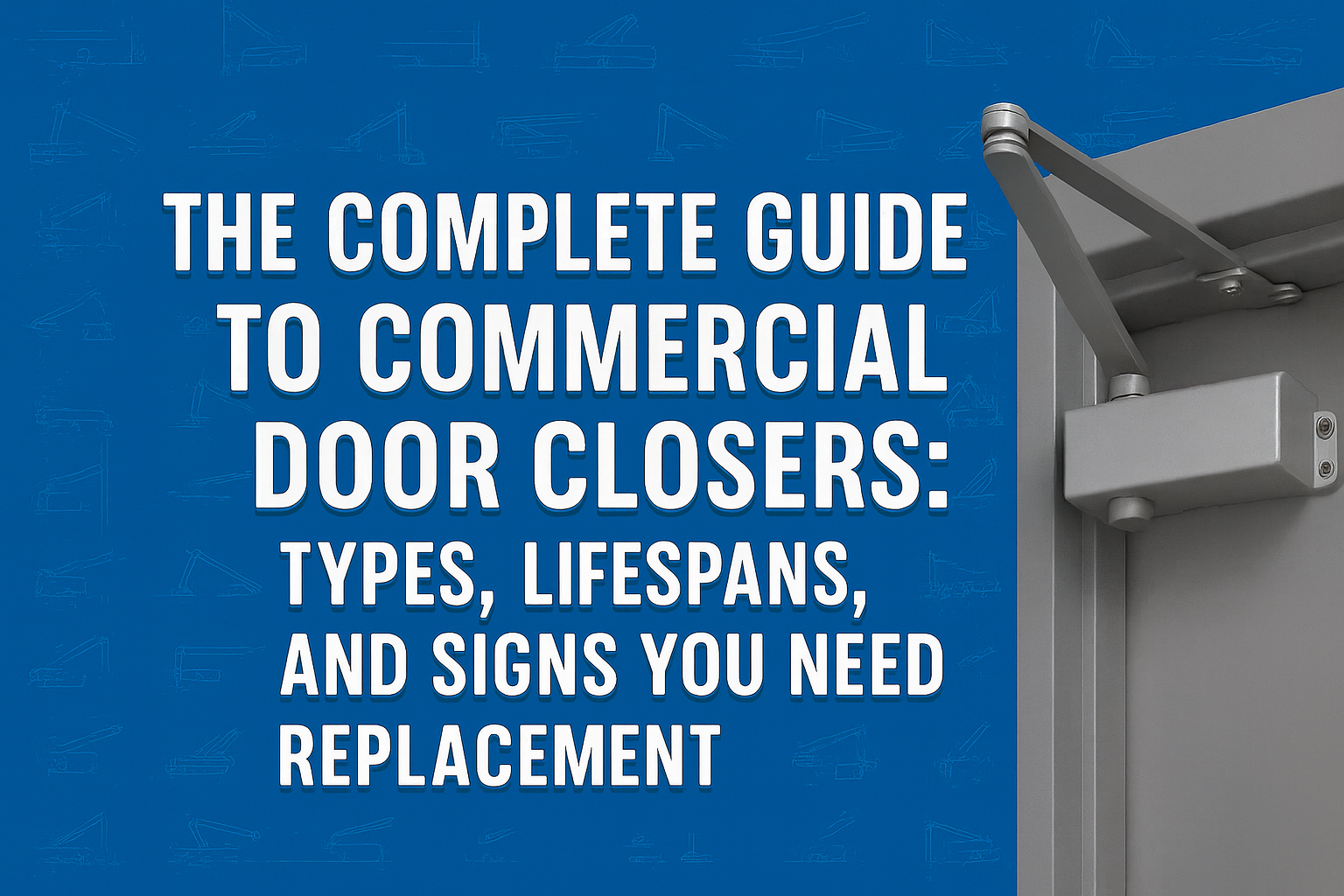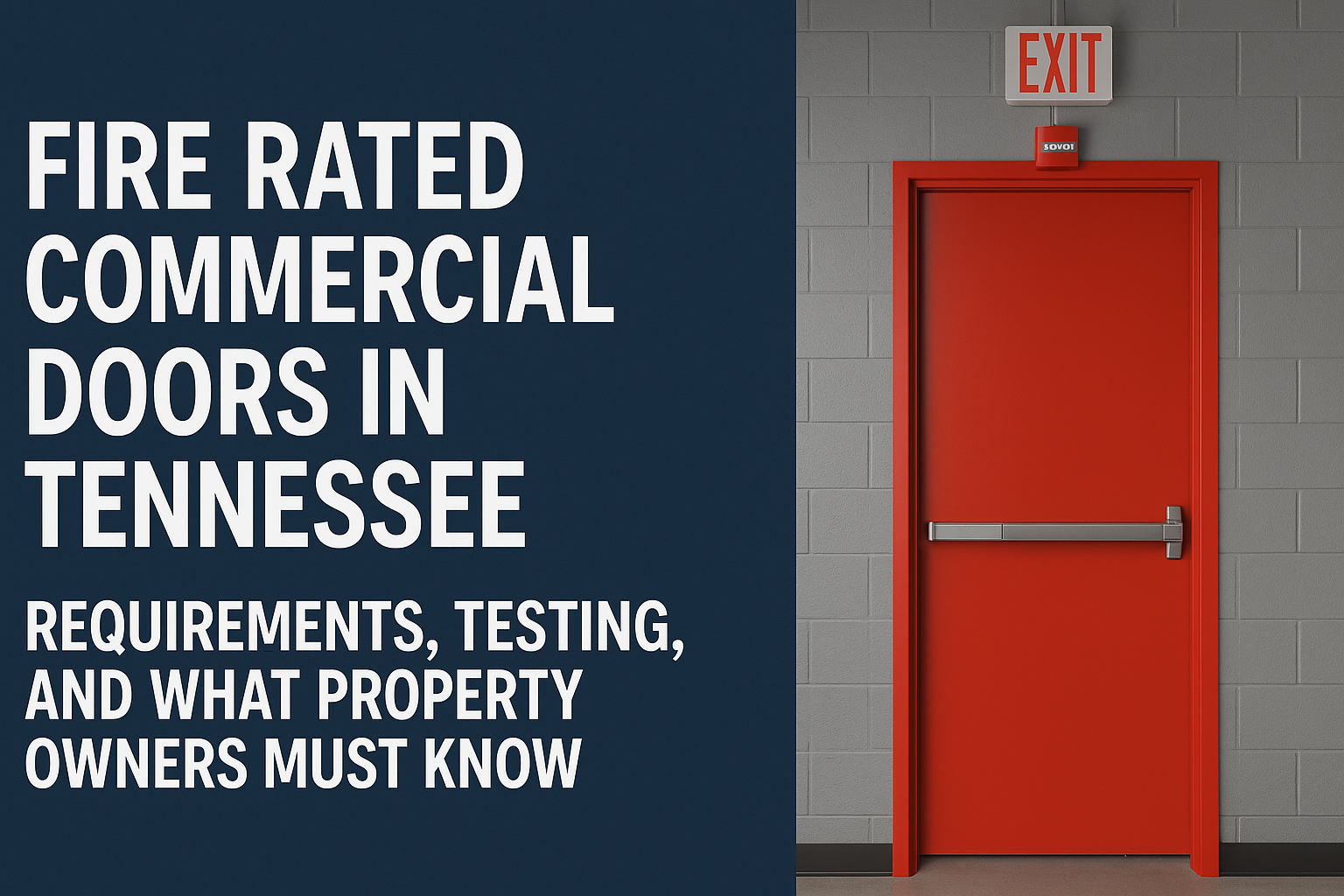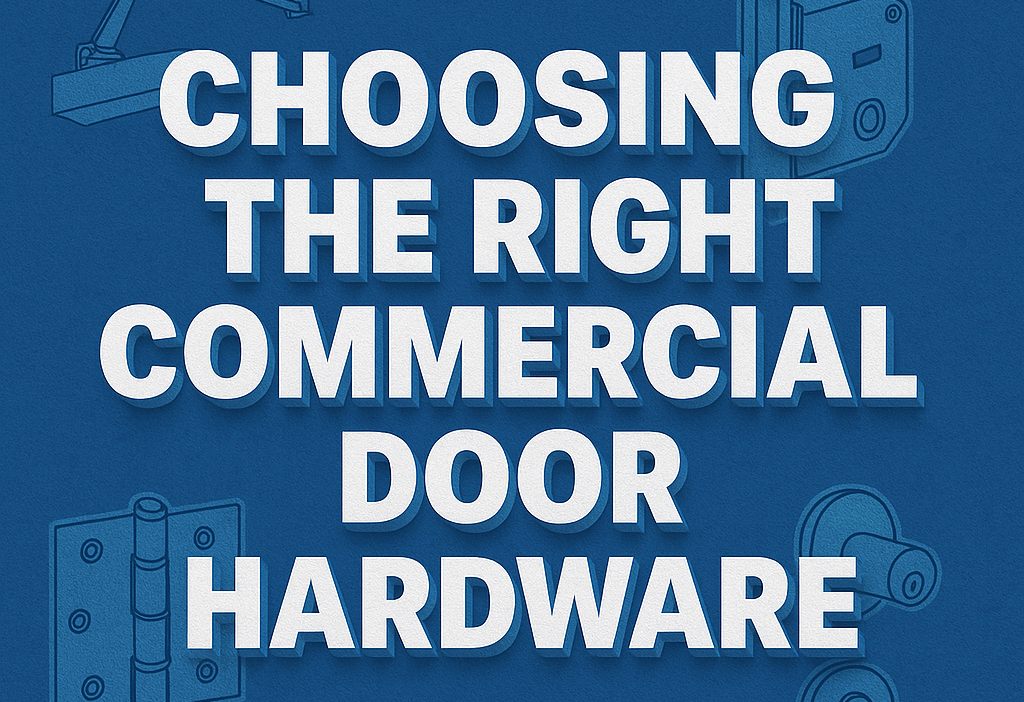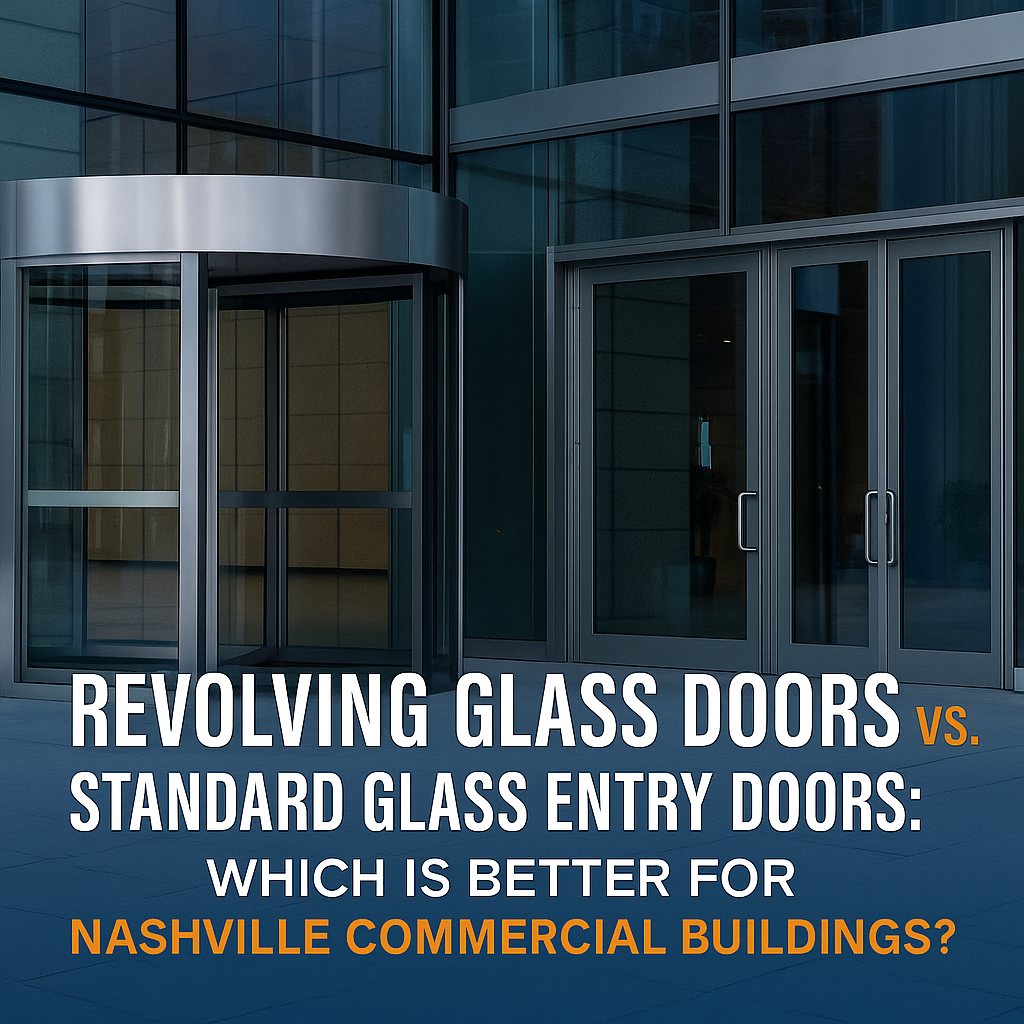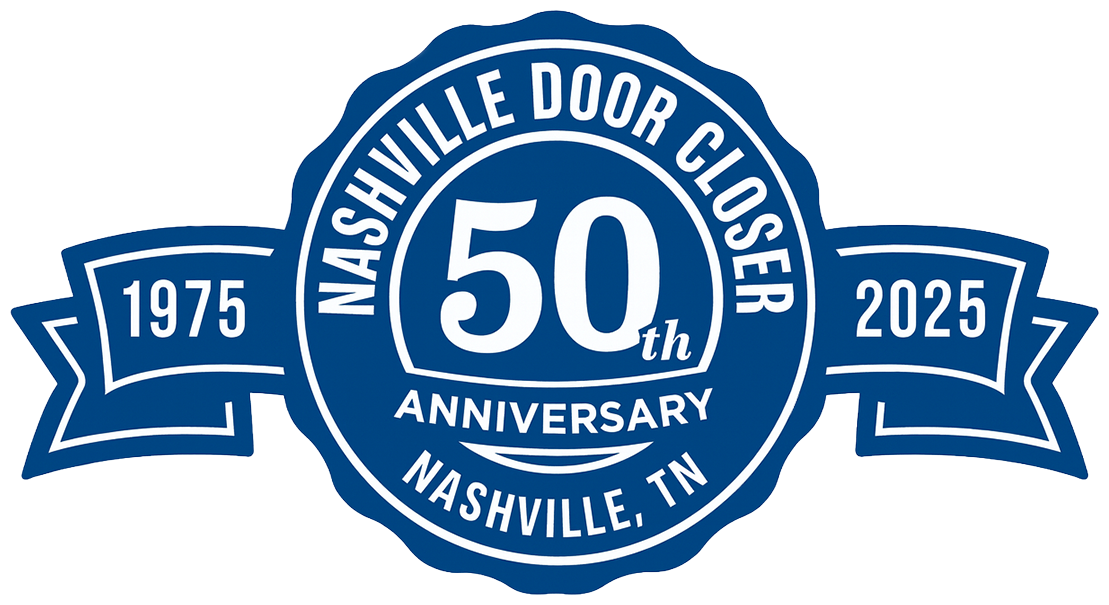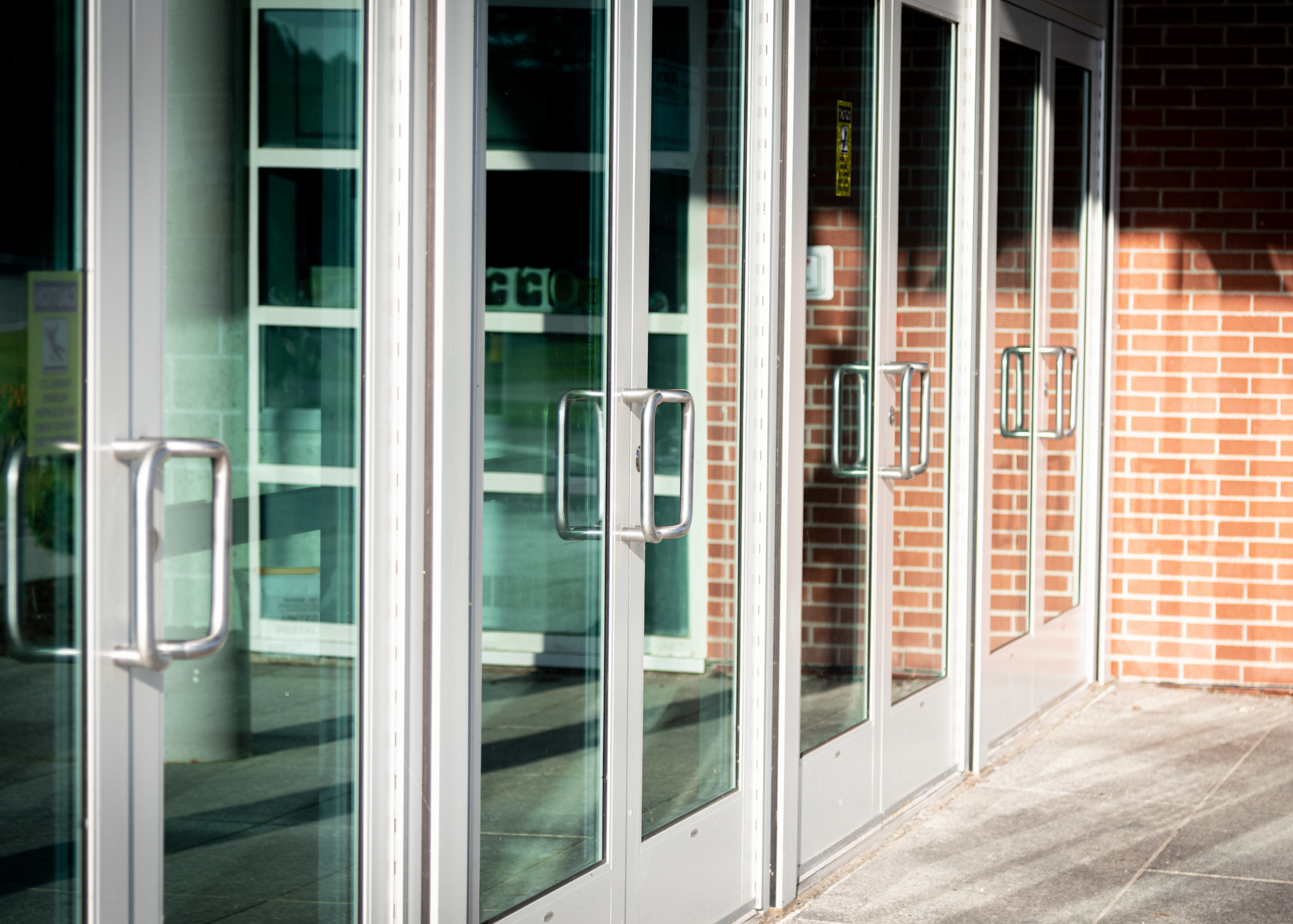Commercial Door Hardware: Types of Products and Suppliers
Learn about the most common types of commercial door hardware—from locks and closers to panic devices and electronic access—and where to find reliable suppliers. This guide from Nashville Door Closer covers everything you need to know.
Every commercial door depends on the right hardware to function safely, securely, and in compliance with local building codes. From entry doors to fire-rated exits, the hardware you choose determines how well your doors perform—day in and day out.
Whether you're upgrading a high-traffic entrance, replacing a worn-out closer, or planning a new build, this guide will help you understand the major types of commercial door hardware, how they're used, what to look for in quality products, and where to source them reliably.
Why Commercial Door Hardware Matters
Commercial door hardware does far more than open and close a door. It protects your property, ensures safe egress during emergencies, helps meet ADA and fire safety regulations, and supports access control systems for modern buildings.
Poorly chosen or installed hardware can lead to:
- Code violations and fines
- Safety hazards for employees and customers
- Excessive wear and maintenance costs
- Security breaches or break-ins
Choosing the right products and working with experienced installers ensures that your hardware performs as intended—and lasts.
Types of Commercial Door Hardware
Here’s an in-depth look at the most common categories of commercial door hardware, along with their functions, variations, and typical applications.
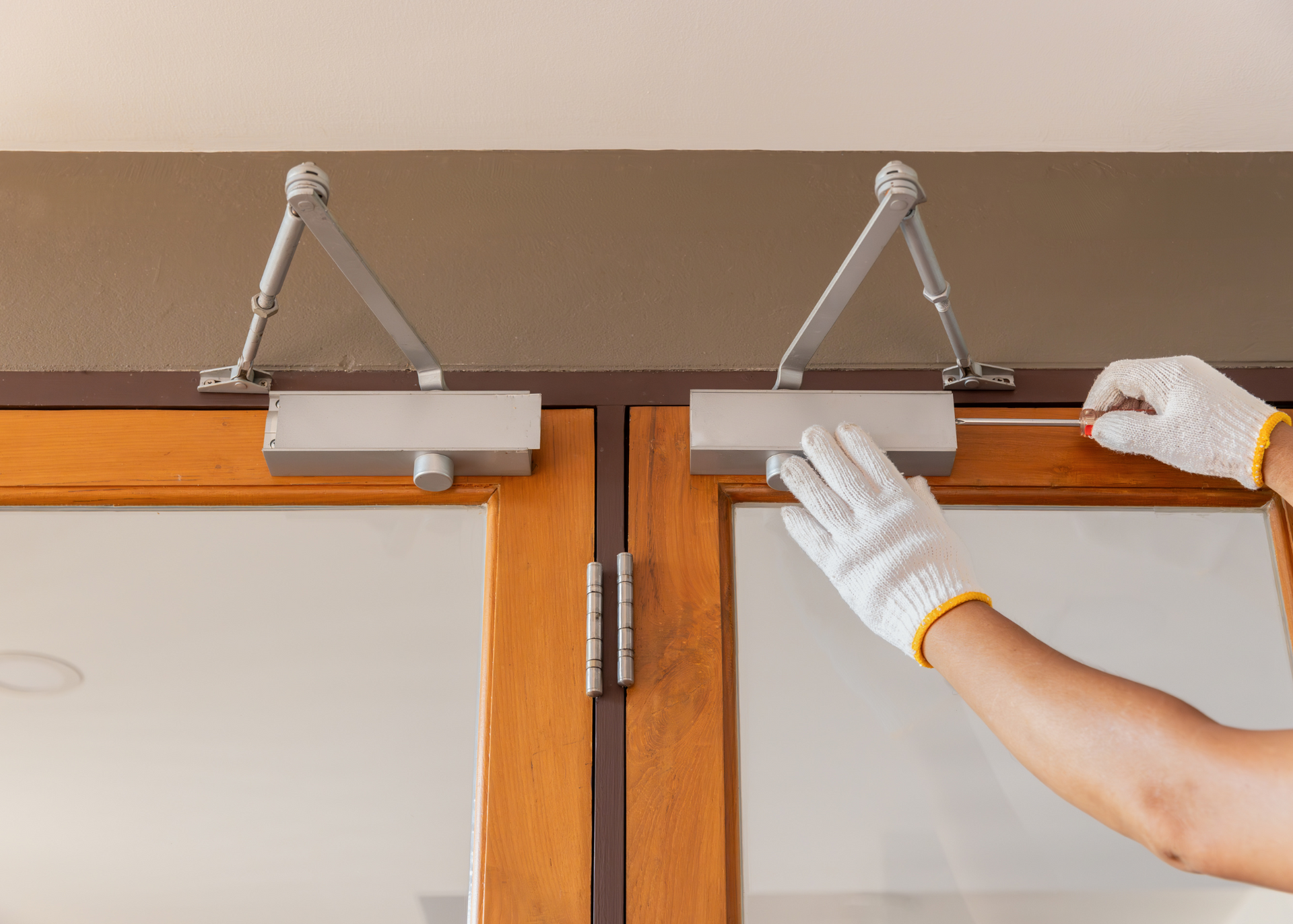
1. Door Closers
Purpose: Automatically close the door after it's opened, ensuring secure closure and compliance with fire safety codes.
Types of Commercial Door Closers:
- Surface-mounted closers: Most common and versatile; mounted on the push or pull side of the door.
- Overhead concealed closers: Installed in the door frame for a cleaner look, common on glass or aluminum doors.
- Floor closers: Hidden in the floor; ideal for heavy doors or all-glass configurations.
- Spring hinges: Used in lightweight doors or for secondary closures.
Key Considerations:
- Adjustable closing and latching speed
- Backcheck and delayed action features
- UL-listed for fire-rated doors
- ADA compliance (low opening force)
2. Exit Devices and Panic Bars
Purpose: Provide a quick, code-compliant way to exit during emergencies.
Types:
- Rim exit devices: Surface-mounted with a latch that engages the frame.
- Vertical rod exit devices: Secure both top and bottom of the door; used on double doors.
- Mortise exit devices: Contain the locking mechanism inside the door.
Fire-Rated vs. Non-Fire-Rated:
- Fire-rated exit devices have no dogging feature and must re-latch after each use.
Best Applications: Schools, theaters, churches, offices, healthcare
facilities, and any building with 50+ occupants.
3. Locking Hardware and Key Systems
Purpose: Control and restrict access to a building or specific rooms.
Types:
- Cylindrical locks: Installed in the face of the door; easy to install and replace.
- Mortise locks: More durable; recessed into the door with integrated latch and deadbolt.
- Deadbolts: Adds additional security for storage or back-of-house areas.
- Electric strikes and magnetic locks: Used in access control systems for remote locking/unlocking.
- Key systems: Can include master keys, interchangeable cores (IC), and restricted keyways for added control.
ADA Tip: Ensure locks require no tight grasping, pinching, or twisting to operate.
4. Hinges, Pivots, and Continuous Hinges
Purpose: Attach the door to the frame and allow smooth movement.
Types of Hinges:
- Standard butt hinges: Basic, durable, and easy to install.
- Continuous (piano) hinges: Great for high-use doors or doors that sag over time.
- Heavy-duty pivots: Often used on aluminum doors with heavy glass panels.
- Offset and center-hung pivots: For specialty doors like frameless glass or all-glass entries.
Durability Note: High-traffic doors benefit from continuous hinges to distribute weight evenly and reduce stress on the frame.
5. Weatherstripping, Thresholds, and Seals
Purpose: Prevent drafts, water intrusion, and improve energy efficiency.
Types:
- Door sweeps: Mount to the bottom of the door to block air and dust.
- Perimeter seals: Compress or brush-style seals for sides and top.
- Thresholds: Create a smooth transition while sealing the door-to-floor gap.
- Smoke and fire gaskets: Required on many fire-rated assemblies.
Energy Efficiency Tip: Upgrading these components can reduce HVAC loss and improve building comfort.
6. Electronic Access Control Hardware
Purpose: Enhance building security with remote access, time schedules, and audit trails.
Components:
- Card readers, keypads, or mobile access controls
- Electric strikes, magnetic locks, or electrified exit devices
- Request-to-exit (REX) sensors and push-to-exit buttons
- Controllers and software for managing user credentials
Compatibility Tip: Not all door types support all access control systems. Aluminum and steel doors are most common for electrified hardware.
Commercial Door Hardware Materials and Finishes
Choosing the right material and finish is important for durability, aesthetics, and compliance.
Common Materials:
- Stainless steel: Corrosion-resistant and ideal for exterior or healthcare environments
- Aluminum: Lightweight and often used on storefronts
- Brass/bronze: Decorative and durable, often used in offices or hospitality
- Zinc or powder-coated steel: Budget-friendly, durable, and available in various colors
Common Finishes:
- Satin chrome (626)
- Oil-rubbed bronze (613)
- Satin stainless steel (630)
- Polished brass (605)
Match hardware finishes across locks, closers, and hinges for a cohesive look.
Top Commercial Door Hardware Manufacturers
Nashville Door Closer works with top brands to ensure long-lasting performance and code compliance.
High-Quality Manufacturers We Trust:
Our Partners:
- De La Fontaine – Commercial hollow metal doors and frames
- Horton – Automatic sliding and swinging door systems
- Hager – Comprehensive architectural hardware, including hinges, locks, and thresholds
- National Guard Products – Weatherstripping, thresholds, and fire-rated door seals
Other Trusted Manufacturers:
- LCN – Known for premium door closers
- Von Duprin – Leader in exit devices and panic hardware
- Schlage – Locks, deadbolts, and key systems
- Adams Rite – Ideal for aluminum storefront doors
- DormaKaba – Comprehensive commercial access control solutions
- Sargent / Corbin Russwin – Grade 1 commercial hardware
- Norton – Door closers and overhead stops
- HES (ASSA ABLOY) – Electric strikes and access control
- Falcon / Monarch – Budget-friendly options for moderate-traffic facilities
- Allegion – Global leader in security and commercial door hardware systems
Specialty Brands:
- Kawneer Panic Hardware – For aluminum and glass storefront doors
- Rixson – Specializing in pivots and concealed closers
- BEST – Interchangeable core key systems
Where to Buy Commercial Door Hardware
Reliable sourcing is critical for ensuring hardware compatibility and quality. Options include:
1. Local Distributors
- Personalized support and fast delivery
- Can match hardware to door types and building codes
- Often carry emergency stock for quick turnarounds
2. Authorized Dealers
- Certified by manufacturers to sell and support specific hardware lines
- Ideal for specialized or integrated access control systems
3. Online Suppliers
- Good for bulk orders or standard SKUs
- Less ideal for code-driven assemblies or custom configurations
Need help choosing or sourcing hardware? Nashville Door Closer can recommend and supply the right parts for your doors.
Installation: Why It Should Be Handled by Professionals
Even high-quality hardware can fail if improperly installed. Here's why professional service matters:
- Code Compliance: Fire-rated doors, ADA standards, and life safety regulations require specific hardware installation methods.
- Performance: Correct torque, alignment, and spacing make all the difference in long-term function.
- Access Control Integration: Most electrified hardware must be wired and configured properly to work with security systems.
- Warranty Protection: Manufacturer warranties often require certified installation.
Nashville Door Closer’s technicians are trained in handling installations across all major hardware types and brands.
Get the Right Hardware for Your Doors
Whether you're outfitting a new facility or upgrading your current system, selecting the right commercial door hardware is essential to building security, function, and compliance.
From panic bars and closers to electric strikes and key systems, Nashville Door Closer can help you choose, source, and install the best products for your specific needs.
Contact us
today for expert recommendations or to schedule a hardware assessment at your facility.
